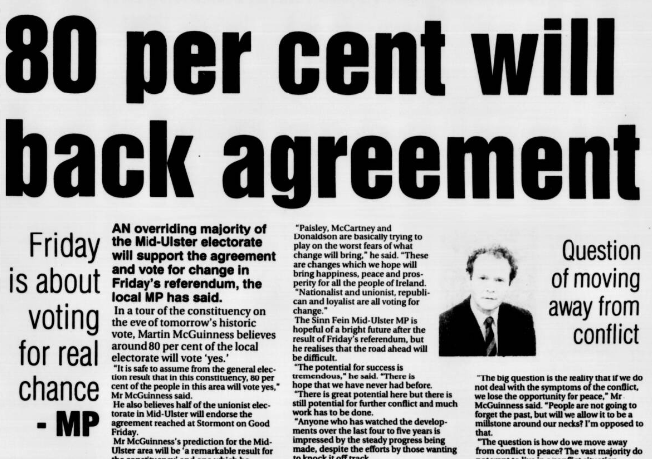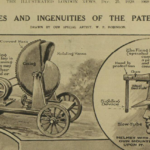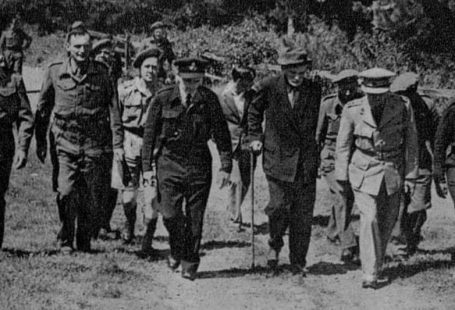We’re delighted to have added 138,191 brand new pages to The Archive this week, including one exceptional brand new Northern Irish title the Ulster Star. Meanwhile, we’ve made updates to 4 of our existing titles, covering 1922-1998.
Register now and explore the Archive
As we continue to augment our newspaper Archive, we’ve added one brand new title to our collection of newspapers from Northern Ireland. This newspaper is the Ulster Star, and it was founded in the city of Lisburn in 1957.
A weekly newspaper, the Ulster Star covered the local news from the city, which lies on the River Lagan. The River Lagan forms the boundary between County Antrim and County Down, and so the city itself is spread across these two counties.
In its early days, the Ulster Star consisted of twenty pages and was sold at fourpence. By the 1970s, it had expanded to fill 40 pages but continued to cover the news from the area.
A relatively late arrival onto the Lisburn publishing scene, the Ulster Star outlived competitors like the much older Lisburn Standard, which was founded in 1878. The Ulster Star therefore survives as the city of Lisburn’s only local newspaper.
We’ve made significant updates to some of our existing Northern Irish titles this week too. Over seventy years of headlines join County Tyrone’s Mid-Ulster Mail, with over 20,000 brand new pages joining this particular title. The Mid-Ulster Mail was founded in 1891 in Cookstown, and features the news from both County Tyrone and County Londonderry. Meanwhile, we continue to add more pages to the eminently historic Belfast News-Letter, which means that this title now nearly numbers 500,000 pages in all.
25 Years of the Good Friday Agreement
This year marks the 25th anniversary of the historic Good Friday Agreement, a pivotal moment in Northern Ireland’s history, also known as the Belfast Agreement. This year, we’ve been hard at work, adding hundreds of thousands of pages from Northern Irish newspapers to our collection, bringing the total to over seven and a half million pages from 52 different titles. But that’s not all – in a special release this week, we’ve included the pivotal years of the Mid-Ulster Mail from 1996 to 1998. Now, you can experience history as it happened.
The Good Friday Agreement, initially presented on April 10, 1998, was a landmark moment in Northern Ireland’s journey towards peace and reconciliation. It wasn’t just a simple agreement; it needed to be ratified through a public referendum on May 22, 1998. Throughout those crucial months in April and May of 1998, you can step back in time and follow the passionate arguments for and against ratifying this historic agreement. By delving into contemporary newspapers, you can gain a deep understanding of the debates that raged on either side of the divide and within singular political parties about the agreement’s merits. It was a moment of intense discourse and transformation, as Northern Ireland looked towards a more peaceful future.

On that fateful day in May 1998, the people of Northern Ireland spoke loudly and clearly. The Good Friday Agreement passed with a resounding 94.4% majority, signifying a collective desire for a brighter, more harmonious future. The digitized newspapers of the time captured the hope, the tension, and the anticipation as history was written.

Begin your exploration of Irish History today.
New Titles
| Title | Years Added |
| Ulster Star | 1957-1987, 1989-1999 |
Updated Titles
This week we have updated 4 of our existing titles.
You can learn more about each of the titles we add to every week by clicking on their names. On each paper’s title page, you can read a FREE sample issue, learn more about our current holdings, and our plans for digitisation.
| Title | Years Added |
| Belfast News-Letter | 1994 |
| Mid-Ulster Mail | 1922, 1926, 1938, 1941, 1943, 1949, 1952-1957, 1978, 1985-1986, 1990, 1996-1998 |
| Western Evening Herald | 1988 |
| South Wales Daily Post | 1995 |
You can keep up to date with all the latest additions by visiting the recently added page. You can even look ahead to see what we’re going to add tomorrow.





